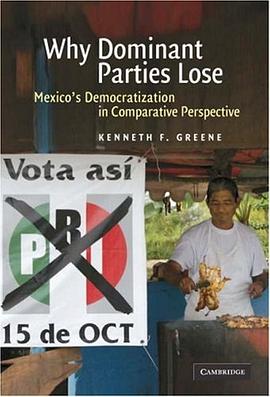Why Dominant Parties Lose
内容简介
Why have dominant parties persisted in power for decades in countries spread across the globe? Why did most eventually lose? Why Dominant Parties Lose develops a theory of single-party dominance, its durability, and its breakdown into fully competitive democracy. Greene shows that dominant parties turn public resources into patronage goods to bias electoral competition in their favor and virtually win elections before election day without resorting to electoral fraud or bone-crushing repression. Opposition parties fail because their resource disadvantages force them to form as niche parties with appeals that are out of step with the average voter. When the political economy of dominance erodes, the partisan playing field becomes fairer and opposition parties can expand into catchall competitors that threaten the dominant party at the polls. Greene uses this argument to show why Mexico transformed from a dominant party authoritarian regime under PRI rule to a fully competitive democracy.
......(更多)
作者简介
Kenneth F. Greene is Assistant Professor of Government at the University of Texas at Austin. His research on regimes, political parties, and voting behavior has been published in Comparative Political Studies, PS: Political Science and Politics, Politica y Gobierno, and Foreign Affairs en Espanol. He has served as Co-Principal Investigator on two National Science Foundation grants for elite and voter survey research in Mexico, won a Fulbright-Garcia Robles fellowship, and held visiting positions at the Center for Democracy and Civil Society at Georgetown University and at the Kellogg Institute for International Studies at the University of Notre Dame. He received his PhD from the University of California, Berkeley in 2002.
......(更多)
目录
Part I. The Macro Perspective:
1. A theory of single-party dominance and opposition party development;
2. Dominant party advantages and opposition party failure, 1930s–90s;
Part II. The Micro Perspective:
3. Why participate? A theory of elite activism in dominant party systems;
4. The empirical dynamics of elite activism;
Part III. Implications:
5. Constrained to the core: opposition party organizations, 1980s–90s;
6. Dominance defeated: voting behavior in the 2000 elections;
7. Extending the argument: Italy, Japan, Malaysia, and Taiwan.
......(更多)
读书文摘
......(更多)






